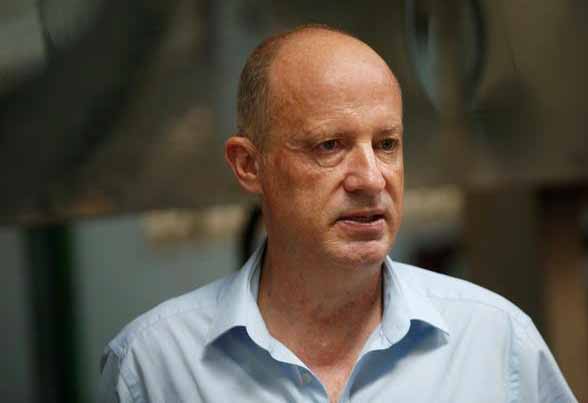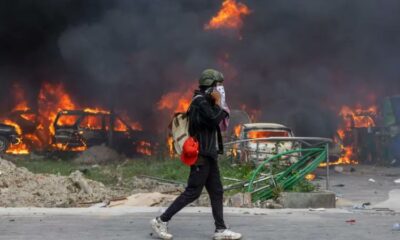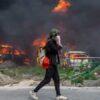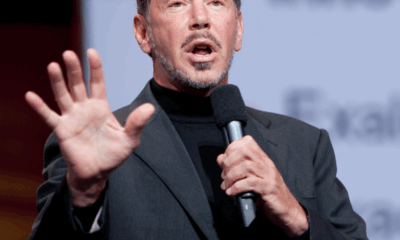Analysis
GOLD SMUGGLING: Will US Sanctions stop AGR’s Goertz?

Alain Goetz, says he’s no longer affiliated with AGR, but sanctions suggest he’s got a say. His son though is said to be in charge othe Ugandan unit
The US Treasury last week slapped sanctions on Alain Goetz, the founder of African Gold Refinery located at Entebbe near the country’s international airport.
The US Treasury has in the past issued sanctions against Ugandan high ranking security officers.
One of them is former police chief Gen. Edward Kale Kayihura. The very latest one is former CMI chief, Abel Kandiho.
Well, Kayihura despite the fact that he is out of job, is going about his businesses and life unbothered by the sanctions.
While Kandiho was relieved of his CMI job, he has since secured a very big one in the police force.
His loss of the CMI job has a lot to do with President Museveni’s reconciliation with Rwandan peer, Paul Kagame than the US Treasury so-called sanctions.
Back to Goetz.
The Belgian is being faulted for trafficking in suspected smuggled gold from Uganda’s neighbor the Democratic Republic of Congo (DRC) as well as from the politically unstable South American state of Venezuela. Venezuela remains under sanctions by the US after the country’s leader Nicolas Maduro refusing to accept the results of December 2020 polls .
Goetz Gold, the Belgian-based company controlled by his Tony Goetz, is under suspicion for being part of an illegal trafficking network of conflict minerals. The company bought gold from the African Gold Refinery (AGR) in Entebbe Uganda. AGR is the largest refinery in sub-Saharan Africa.
Although Alain Goetz claims he is longer connected with AGR, his son Sylvain Goetz manages it. The latest sanctions by the US Treasury are further proof that Alain’s illegal dealings are alive and well. A recent report from an investigation concluded that tons of Gold was trafficked from Venezuela.
The accusations against Goertz gold are contained in a 2018 investigation titled the ‘Golden Laundromat,’ published by The Sentry. It is an anticorruption organization based in Washington DC, which monitors businesses contributing to violence in Africa, co-founded by US actor George Clooney.
But the gold refined by the AGR does not only come from their African neighbors. Recently, the Ugandan company admitted to receiving material from an unspecified country in South America. A Ugandan government owned media outlet indicated that the country could be Venezuela, where the government currently relies on gold sales to obtain liquidity amid its collapsed economy and to avoid sanctions imposed by the US and Europe.
On March 13, police authorities in Uganda announced they were investigating the legality of an import of 7.4 tons of gold to the Ugandan refinery made in March 2019 with an estimated value of US$300 million.
The besieged but carefree Goetz, calmly reached for the phone. He dialed big people to do the needful.
His powerful backers quickly sent out tough words ordering the nosy cops out of the facility.
And the cops frustratingly coiled their tails behind their legs and sped off to wherever they had come from.
Goetz Gold bought 21.8 tons of gold from Venezuela in 2018, which represented 30 percent all international sales of gold by the central bank. The largest single shipment of 15.6 tons happened on December 3, 2018, shortly after the US announced sanctions on anyone carrying out transactions involving Venezuelan gold.
Dealing in minerals is a highly monitored trade and many organisations require that whoever deals in the industry is registered, is transparent about the source of the minerals and uses the banking system to make payments instead of cash.
At the beginning of February 2022, a court in Belgium conceited the two Goetz brothers after they were found guilty of money laundering and fraud. They were given 18-month suspended jail sentences.
The judgment comes as investigators and states increase pressure on refineries to make sure illegally mined or traded gold does not enter the market.
The court ruling said Alain and his son Sylvain Goetz set up a fraudulent system in 2010 and 2011 for customers to sell gold anonymously to the Tony Goetz refinery in Antwerp for cash, creating the basis for black-market trade.
Armed banditry groups fighting in DRC are thought to be Goetz’s boundless sources of gold.
But smuggled gold fuels banditry in DRC. Outside forces looking to make massive bucks from illegal gold, pay armed groups to mine and supply the mineral to them.
Whilst others give them real guns which has been unquestionably sustaining incessant insecurity and aiding looting of minerals.
Sanctioning Goetz is a lot much easier. Scaring the Belgian from doing what he is currently being sanctioned for, however, is what is pretty a tall order.
What the world is impatiently waiting to see is whether the new sanctions will curtail Goetz and his powerful backers some residing and working in the West, for that matter, from trafficking in DRC’s illegal gold.
In any case, the US sanctions aren’t something new. UN has blacklisted Goetz on many occassions in the past for what the US Treasury is currently sanctioning the Belgian for.
The UN is a puppet of the US. For the sake of the uninitiated, US is UN’s biggest funder. This means, UN has been blacklisting Goetz previously with the tacit consent and approval of it’s benefactor.
Much the same, the Belgian has continued to operate and trade in gold unhindered by UN’s reprimands.
Any wonder that gold continues to rake in massive dollars than any other export from Uganda.
Never mind that Uganda has no known corresponding massive gold mines let alone the fact that much of our gold is still lying in the ground.
Comments


























